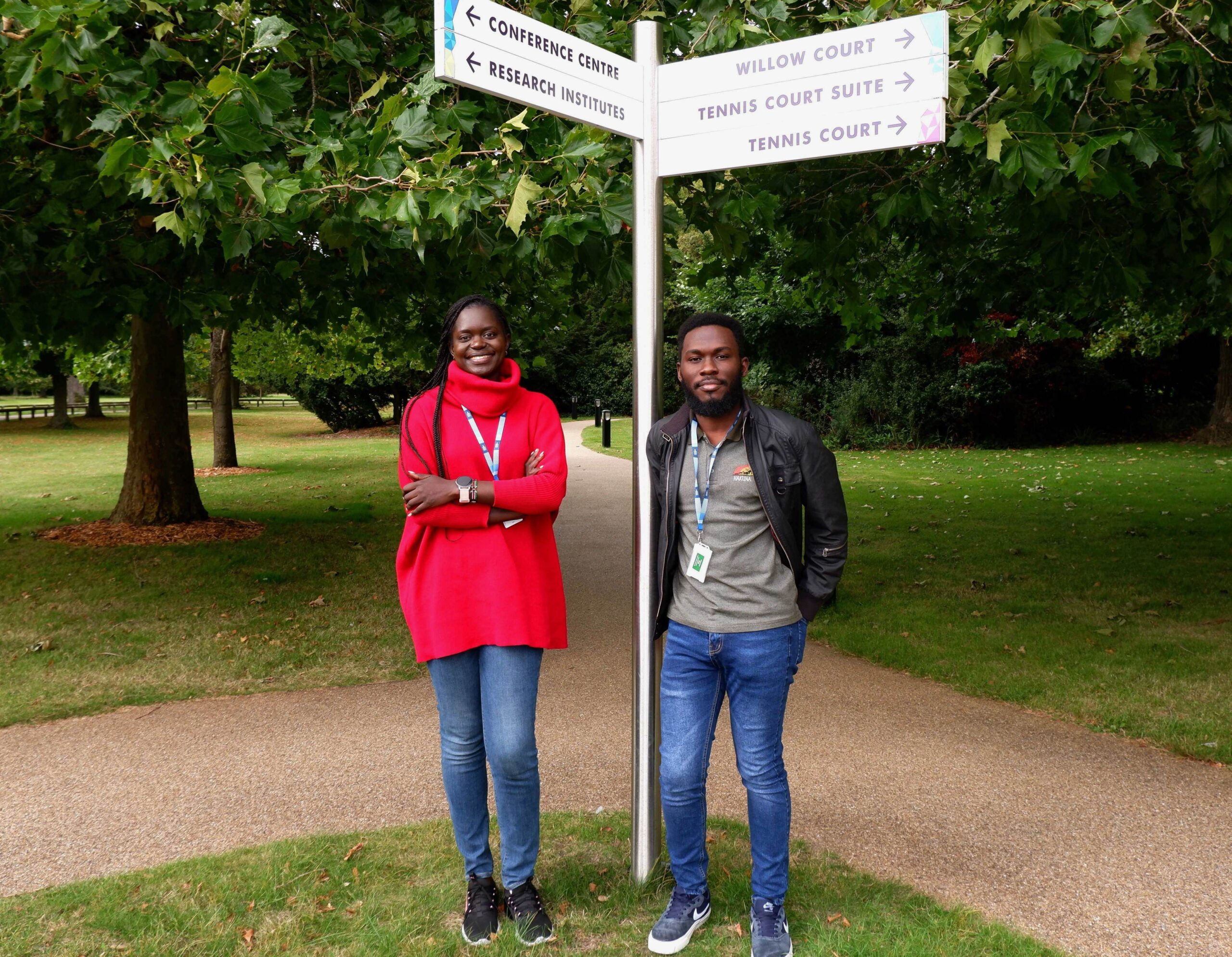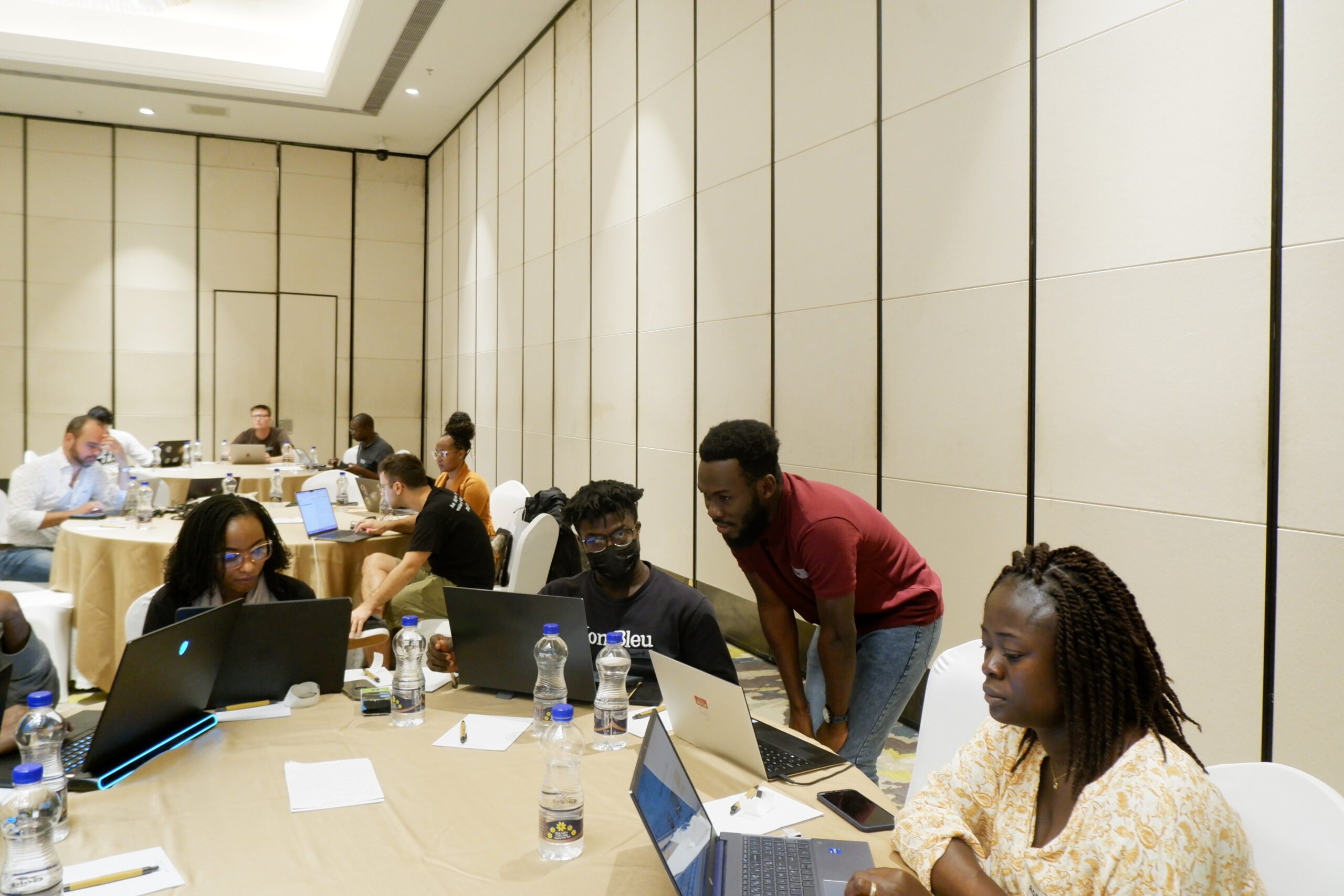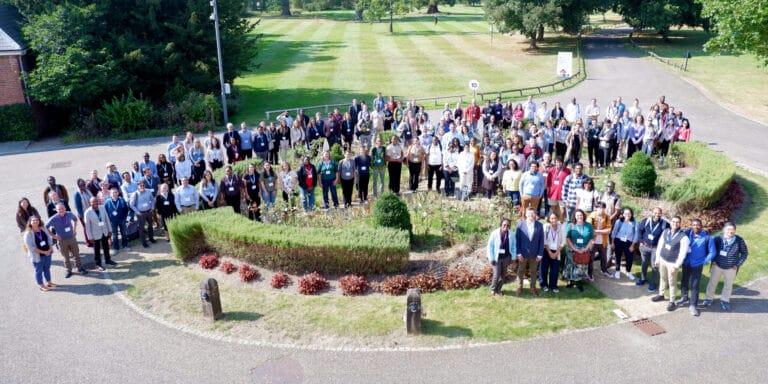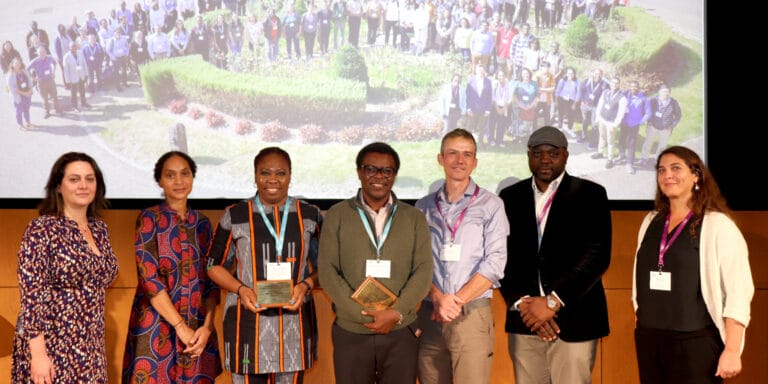Sonia Barasa
Women have unique perspectives and contributions to offer in genomics and malaria research.

Sonia’s interest in malaria vector genomics comes from her firsthand experience with the disease that has deeply affected her community in Homa Bay County, Kenya. “Growing up, I used to worry a lot about malaria,” she said. “I suffered from malaria when I was young, I couldn’t go to school for some days because it was really serious.”
After completing her bachelor’s degree in biotechnology, a placement at the KEMRI Center for Global Health Research in Kisumu laid the foundation for her future work in malaria vector genomics. At KEMRI, she and her team collected mosquitoes and conducted molecular analyses to characterise species and screen them for mutations linked to mosquitoes’ resistance to insecticides.
She explained, “At that time, I was mainly focused on molecular work. I hadn’t yet delved into bioinformatics. However, my experiences in the lab and the field started to raise questions about the genetic factors driving the spread of diseases like malaria.”
Sonia’s passion for genomics eventually led her to the PAMCA-MalariaGEN fellowship, which she started in 2022. “I saw that it was combining my master’s training in bioinformatics with my passion for understanding malaria and mosquito behaviour. I knew I had to go for it,” she said.
So far, the fellowship has encompassed rotations in data analysis, scientific computing, and data curation, which is a critical step in ensuring the quality of vector genomic data before it can be processed and analysed. She is eager to get into the next rotation which, will involve running and understanding the workflows of variant calling pipelines while working closely with the GSU’s data engineering team.
Sonia’s work doesn’t stop with bioinformatics; it extends to the real-world application of genomics in malaria control. As she recalled her experience engaging with National Malaria Control Programs (NMCPs) members at the recent PAMCA-MalariaGEN vector genomics hackathon and NMCP convening in Addis Ababa, she emphasised the need for collaboration between scientists and NMCPs.
“NMCPs play a pivotal role in implementing malaria control measures,” she explained. “However, there’s often a disconnect between the scientific community and NMCPs. Scientists need to communicate their findings more effectively so that NMCPs can use it for decision-making.”
Sonia also stressed the need to encourage more women to enter STEM fields and bioinformatics. “Women have unique perspectives and contributions to offer in genomics and malaria research,” she noted. “We need to create a supportive environment and offer training opportunities to empower women in these fields.”
Sonia shared her enthusiasm for exploring new places and experiences while in the UK. “I see each adventure as an opportunity for personal and professional growth,” she said.
Ibra Lujumba
Malaria is mostly an African problem so Africans have to play a more active role in malaria control.
When Ibra applied to the PAMCA-MalariaGEN fellowship towards the end of a bioinformatics Master’s programme at Makerere University in Uganda, malaria genomics was a field he had yet to explore. “I had not [worked on] malaria before, but I’d done similar work in understanding natural selection in indigenous cattle.”
Fast forward a year and three rotations of the fellowship, and he has combined a diverse understanding of malaria genomics with new bioinformatics skills. “One of the things that this fellowship has given me is that after my master’s training, I get to use most of the things that I learned, so they essentially help me build a lot more context in what I train for.”

He is now exploring new horizons, working with various teams at the GSU to fortify his skills while at the Sanger Institute. “One of the things I’ll be learning next with the data engineering team is a Workflow Description Language, WDL (pronounced “widdle”), which is used to define tasks and bioinformatics workflows to analyse genomic data.”
Ibra also shared his excitement about the upcoming 4-week lab rotations at the malaria genomic sequencing laboratories at Sanger, which both he and Sonia will immerse themselves in. “We’ll go over the sample preparation, have a tour in the sequencing labs, and then see how all the data fits into the pipelines,” he said. “I think if you’re going to be doing malaria research, it’s important that you understand all the steps that are involved and that’s the goal of going to the lab.”
Ibra emphasised the importance of training, not just in acquiring skills but also in empowering local malaria researchers and policymakers to take charge of their own challenges. “The goal of the train-the-trainer model [of the fellowship] is to have those people that are trained to then pass on the skills.”
Looking to the future, Ibra is keen to participate in initiatives to build African-led malaria genomics capacity in Africa. “Most of the questions from NMCPs are about making genomics operational, but then part of making it operational is having their own people involved,” he said. “Malaria is mostly an African problem so Africans have to play a more active role in malaria control. So if you can get people outside science to understand what you’re doing… and tell them how they can benefit and participate, you’ve already created a sense of ownership in them.”
Read Sonia’s blog where she talks about her fellowship experience and work.
Hear from the attendees of the PAMCA-MalariaGEN hackathon at the PAMCA annual conference 2023 in Addis Ababa.
Find out the latest updates from the MalariaGEN community and beyond from our monthly newsletter.



